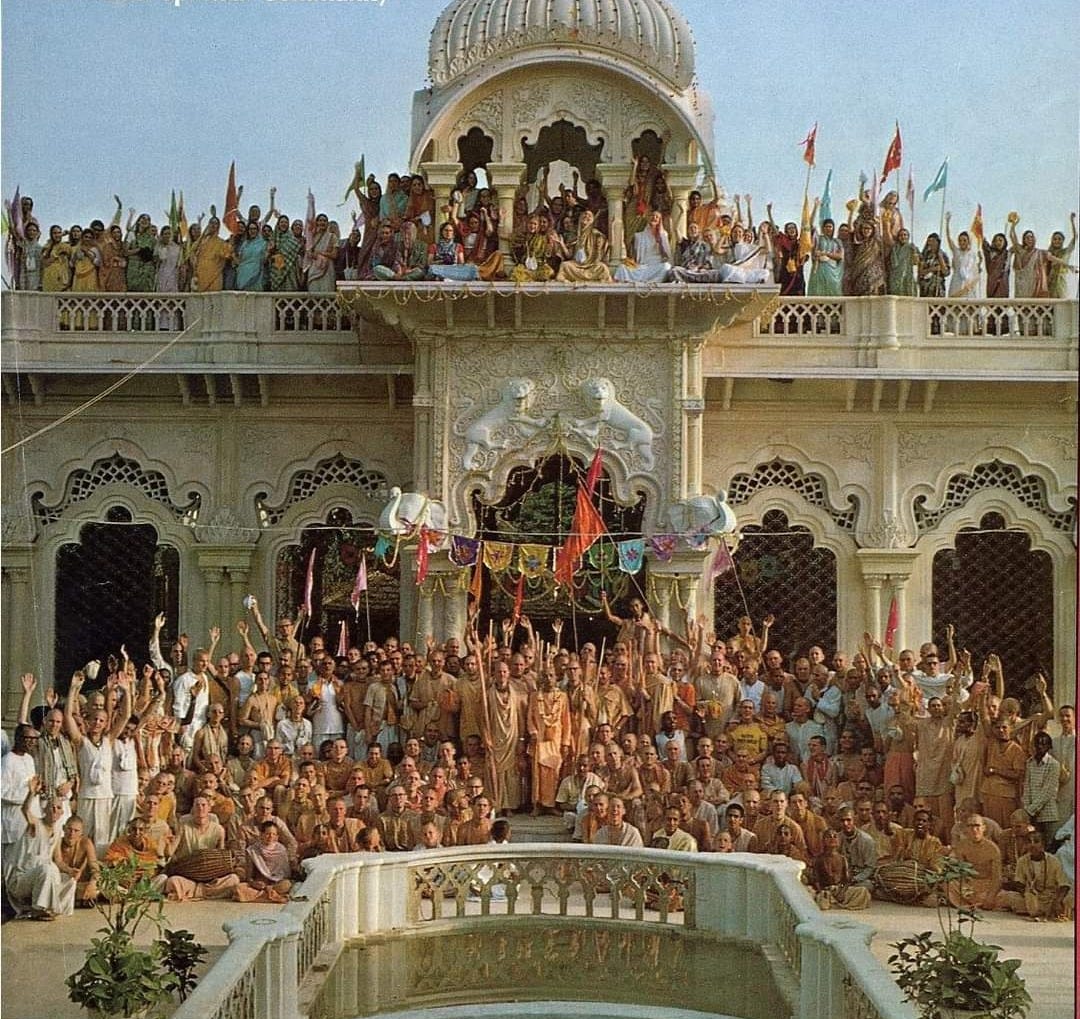Are we observing festivals incorrectly?
Older disciples of Srila Prabhupada mention that they were instructed by Srila Prabhupada to observe the main festivals in a way that is considerably different from what we do today.
When we go to India, we often see devotees not eating grains on the appearance days of incarnations of Krsna, just like we do on Ekādaśīs. A festival with some simple prasāda made without grains may sound very strange for one who is used to seeing huge feasts on Janmāṣṭamī and other special days, but older disciples of Srila Prabhupada indeed mention that they were instructed by Srila Prabhupada to observe the main festivals in a way that is considerably different from what we do today.
In the early days, devotees would observe Janmāṣṭamī by organizing a festival during the day, with kirtanas and other activities, then reading the Krsna Book until late at night, taking some very small prasāda at midnight just to break the fast, and then fasting again on the next morning for the Vyasa-Puja of Srila Prabhupada, with the main prasāda being served after midday. A similar arrangement was done for Gaura Purnima.
Offerings would be cooked on the Janmāṣṭamī day and offered to the deities, but the prasāda would be conserved and honored on the next day.
Over time, the practice gradually changed, and nowadays we often have festivals where the prasāda is distributed in the mid-afternoon. One may discuss what should be done or not according to different considerations, but here I'm not discussing what is right or wrong, just raising the idea that things have changed over time.
In this connection, there is a letter from Srila Prabhupada from 12/03/1968, where he gives instructions on this point:
"So far the Advent Day of Lord Caitanya is concerned, I have written a full suggestion to Montreal, in which the main points are that we should all observe strict fasting up till moonrise, and at that time, an offering is made to Lord Caitanya of Ekādaśī foods, fruits, peanuts, milk, and so forth. Then, on the next day, Friday the 15th, a full-scale feast is held to celebrate His Advent Day. On the 14th, chanting, reading of Srila Bhaktivinode's book, Life and Precepts and Caitanya Caritamrta, Introduction to Bhagavatam, may be held all the day in the Temple."
According to this letter, we should observe a fast on the day of the festival, up to the specified time (midnight for Janmāṣṭamī, the appearance of the moon on Gaura Purnima, or until sunset for the appearance of other Vishnu-Tatvas), and break it with some simple, anukalpa prasāda (without grains, like on Ekādaśī).
In this way, the festival would be observed in two days, with a smaller, more intimate festival centered around chanting and remembering Krsna's pastimes being observed on the main day (with some simple prasāda without grains) and the big festival for visitors with opulent prasāda being observed on the following day. According to the memories of many disciples of Srila Prabhupada who were present in the early days, this was what devotees were doing in the early days of our movement.
Over time, the practice gradually changed, and nowadays we often have festivals where prasāda is distributed in the mid-afternoon. One may discuss what should be done or not according to different considerations, but again, I'm just raising the idea that things changed over time, don't kill the messenger.
Another observation is that this rule is meant to be applied only for the appearance days of incarnations of Krsna. In other festivals, like on the appearance days of different ācāryas and even on the day of the appearance of the spiritual master, the fast goes only up to midday, followed by opulent prasāda with grains. We can see this on the appearance day of Srila Prabhupada, for example, where there is no restriction on the types of prasāda served.


